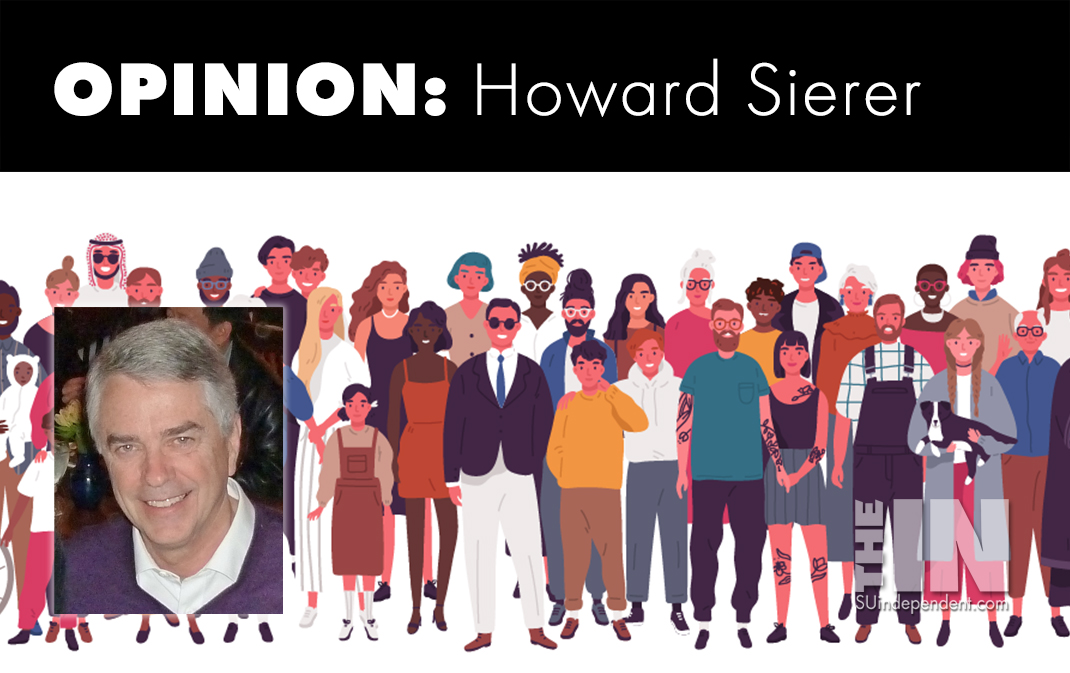
Diversity: The Good, The Bad and The Ugly – Part 1
This is the first of a three-part series on diversity, its value, and its risks to our society.
Diversity – the inclusion of people of different races, cultures, etc. in a group or organization – has indisputable benefits in a country as diverse as ours. Diversity fosters the equality of opportunity that all Americans – liberal, conservative, and those in the center – hold as a core value.
Common sense tells us that we are more likely to understand and relate to those with whom we associate on a regular, non-confrontational basis. We’re more likely to see them as individuals and not as members of an identity group.
Identity group differences are cultural, not inherent in ethnicity or race. Neighborhoods with high percentages of residents with a single racial, ethnic or religious affiliation develop their own cultural personalities. Look no farther than Utah’s unique, church-influenced personality with its many admirable traits that nonetheless leave some feeling like outsiders.
Over time, diversity can erode these cultural differences and, in the process, eat away at the “us versus them” mentality that afflicts too many. Seeing increasing diversity in various roles and settings in movies and on television is a step toward “associating on a regular, non-confrontational basis.” Face-to-face contact at school, in the workplace, and the community is better yet.
Research by psychologist Thomas Pettigrew confirms that contact between groups produces greater understanding. Pettigrew explains that the reason contact works is both cognitive and emotional: “Your stereotypes about the other group don’t necessarily change, but you grow to like them anyway.”
My wife and I experienced Pettigrew’s findings firsthand while living in Europe for 18 months. Many Europeans don’t like America but they like most of the individual Americans they meet.
Almost all of us consciously or unconsciously apply stereotypes to those, not of our own group. Last year’s riots née protests made it easy to revive negative stereotypes about African-Americans.
Long isolated in urban ghettos by overt discrimination in housing, black culture in these neighborhoods is distinct. A downward spiral of poor public schools, lack of family support for young people, and increasing crime have perpetuated negative stereotypes.
African-Americans who have climbed out of those socio-economic sinkholes often give credit to parents or caregivers that did all they could to stress education and moving away.
Despite the accomplishments of many of these African-Americans, there remains a widespread belief that on average blacks lack the intelligence of other races. That negative stereotype was given academic credence in the Harvard Educational Review of all places.
Writing in the Harvard Review, University of California at Berkeley psychologist Arthur Jensen authored a 2014 article titled “How Much Can We Boost IQ and Scholastic Achievement?” In it, he argued that blacks had lower IQs than whites due primarily to genetics and that programs like Head Start, intended to close that gap, would fail.
Jensen was not alone in claiming racial genetics led to lower black IQs, but his article became a catalyst for controversy. Professor James Flynn set out see what was known about race and IQ, gathering prodigious amounts of data that gave rise to questions contradicting Jensen’s claim.
If racial differences in average IQs were innate, why were black women significantly overrepresented among people with high IQs? Why were there white groups in the U.S. and elsewhere with test scores similar to those of blacks? Why were there black schools with test scores that exceeded the national average? Why did studies show that black orphans raised by white families had average IQs of 106 at a time when the average score of blacks nationally was 85 and the average score of whites was 100?
Genetic determinism could not explain any of these well-documented findings. Additional documentation showed that IQ scores among racial and ethnic groups around the world have risen from generation to generation. IQ scores for entire countries rose in the 20th century by more than the black-white difference in the U.S.
Flynn and William Dickens published research titled “Black Americans Reduce the Racial IQ Gap: Evidence from Standardization Samples.” Their data showed that blacks had gained as many as seven IQ points on whites since the early 1970s.
The argument that IQ is genetically fixed is thoroughly discredited: discard that stereotype. For that matter, discard all your stereotypes and get to know people as individuals.
Diverse institutions and personal interactions promote interpersonal understanding and acceptance and lead to making our nation’s motto E Pluribus Unum – out of many, one – a reality.
My next two columns will address the risks to the good diversity can do when its advocates discard equal opportunity and instead insist on equality of results.
Viewpoints and perspectives expressed throughout The Independent are those of the individual contributors. They do not necessarily reflect those held by the staff of The Independent or our advertising sponsors. Your comments, rebuttals, and contributions are welcome in accordance with our Terms of Service. Please be respectful and abide by our Community Rules. If you have privacy concerns you can view our Privacy Policy here. Thank you!
Click here to submit an article, guest opinion piece, or a Letter to the Editor





Mr Sierer’s point is well taken. Don’t judge a book by its cover.
On the subject of recognizing equality, I encourage all to read the current HR-1, For the people Act.
If we believe that every American vote matters. Please read the bill.
Nice article, Howard!